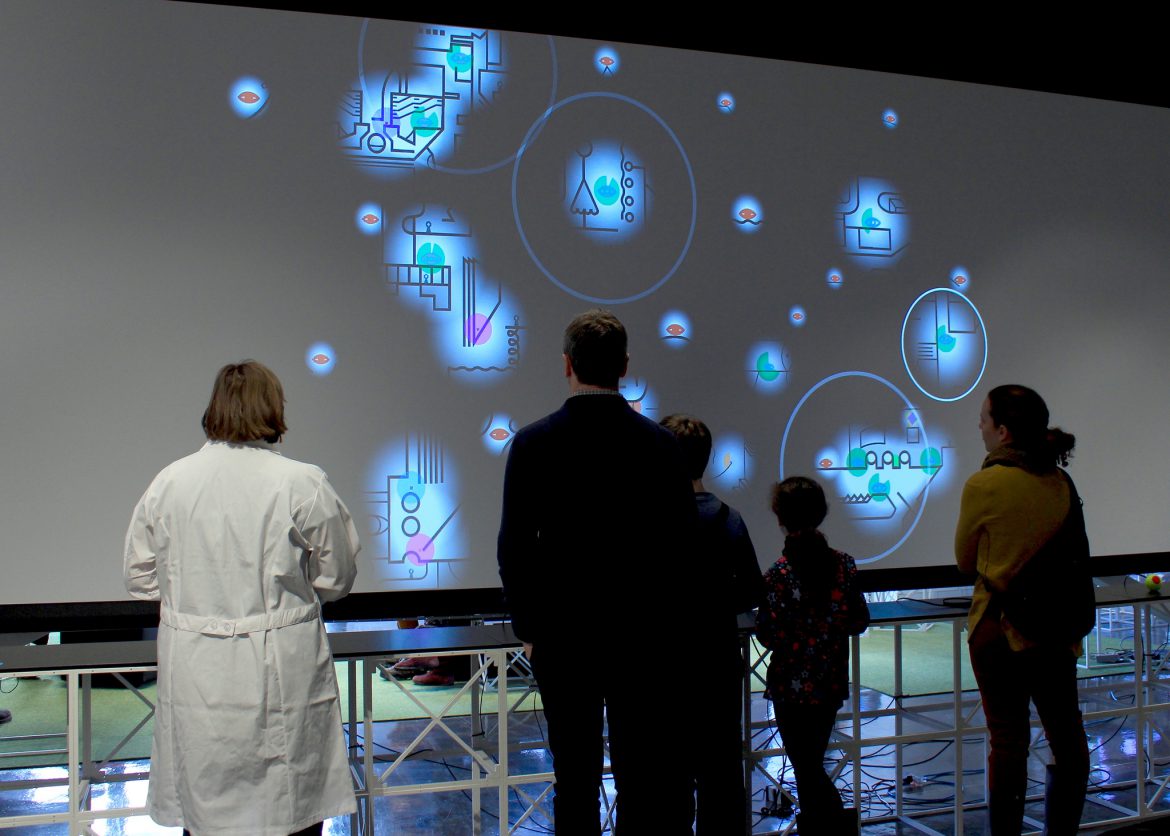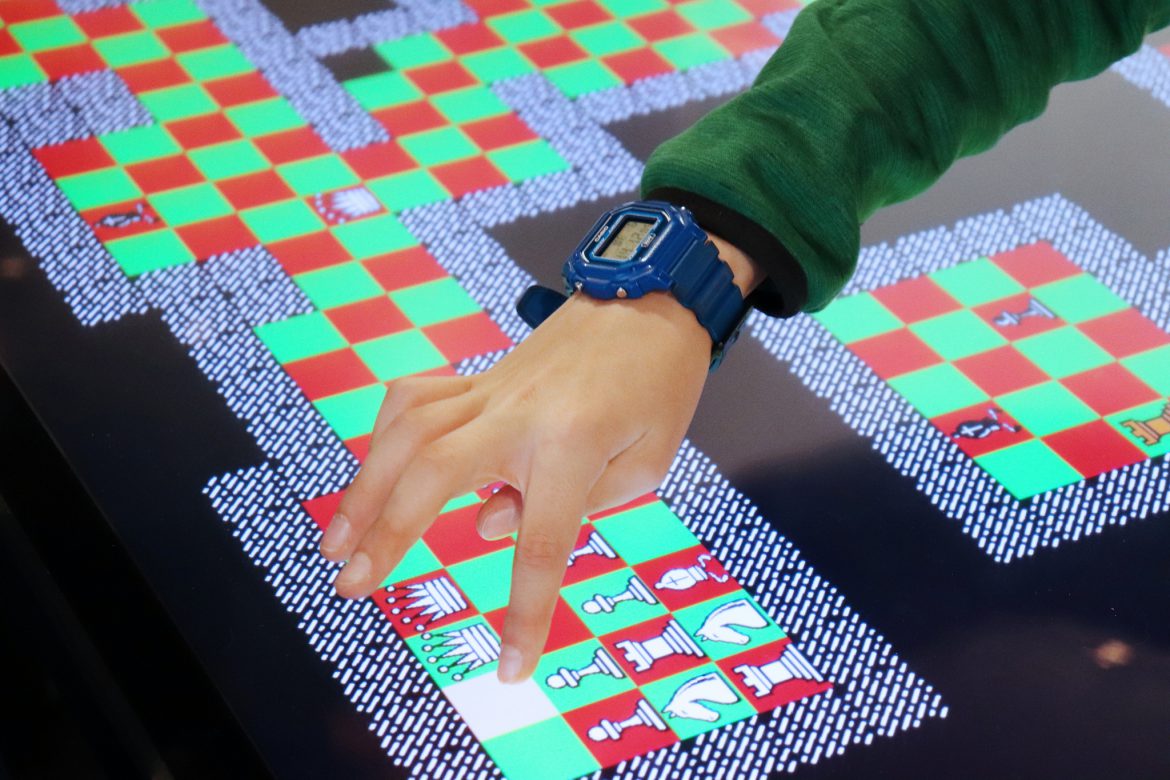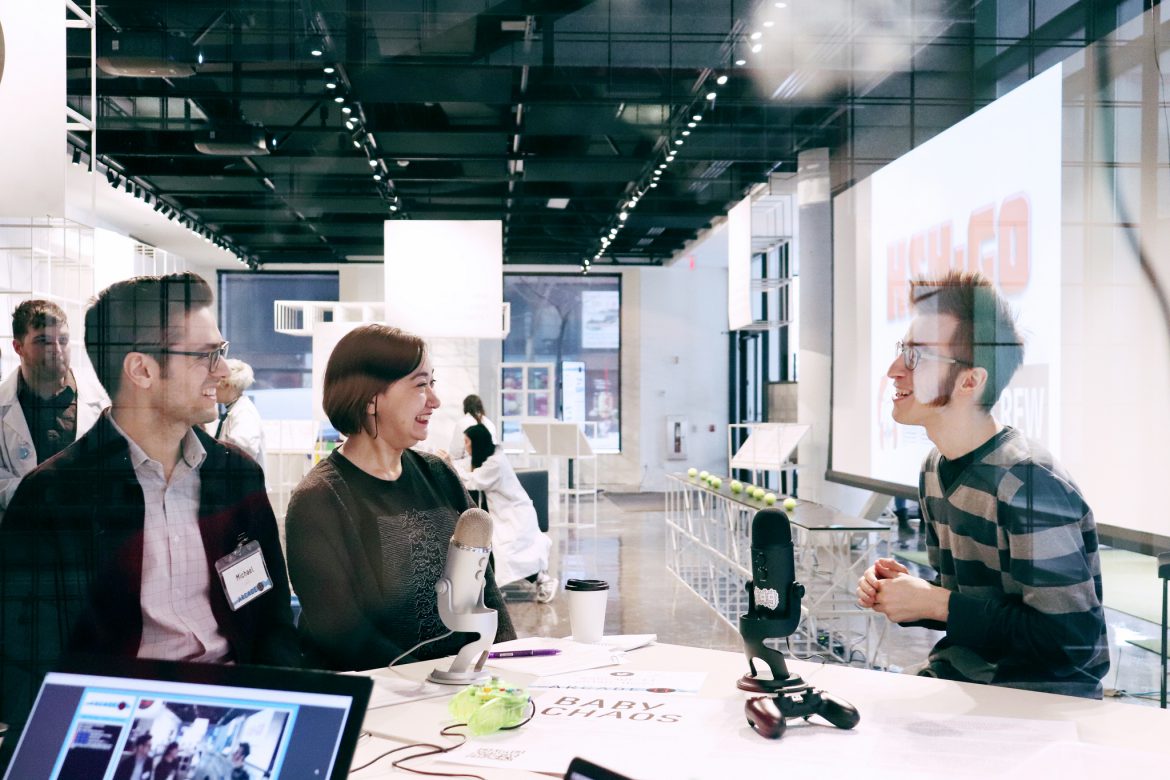From March 4-8, Concordia’s 4th Space hosted Arcade 11! Part of the Montreal Joue festival, Arcade 11 presented games and playful media made by members of the Technoculture, Art, and Games (TAG) research centre at Concordia University. Guests were invited into a playable arcade of research-oriented games to witness the creativity found in iterative game design and to help with with the playtesting process!
Quick Facts
- Hosted in Concordia University’s 4th Space in Montréal from March 4-8, 2019.
- 8 featured games and 7 public playtests.
- 9 interviews with game developers, streamed live on Twitch!
This year’s Arcade 11 posed a simple idea to guests: can games ask us questions? Every game that was presented at the event implored visitors to contemplate a question that related to the project’s design or development.

HSH Go!, for example, asked how new controllers can make videogames accessible for diverse players. An accessible, local, collaborative and multiplayer platform game, HSH Go! uses modified tennis balls as single button controllers. Participants work together to explore and illuminate a darkened scene by spreading across the game space and revealing portions of the screen. A collaboration between HSH crew in Rouen (France) and Ludociels for all in Montreal, HSH Go! requires that visitors communicate and collaborate with each other in order to succeed.

Chogue, a collaboration between Jonathan Lessard and Pippin Barr, asks what happens when two games are merged into one. A hybrid game that combines the venerable board game chess with the quintessential dungeon crawler Rogue, Chogue is an experiment in game design methodology. Lessard and Barr followed a fairly strict procedure to determine which elements – aesthetic or mechanical – to adopt from each game. The result is an intricate exploration/combat game in which players must simultaneously recall and enact strategies from two classic games.
Arcade 11’s playtest corner posed a broader question: how are games developed in an academic setting? Featuring work-in-progress from research-creation students from across Concordia University, guests were invited to try out never-before-seen games and chat with their developers. These projects ranged from Maize Longboat’s Terra Nova, an Indigenous-led videogame project that examines narratives of colonization, to Jess Marcotte’s TRACES, a time travel game that explores themes around gender identity. Integrating theatre, diorama, augmented reality, and digital technologies into their approaches, Arcade 11’s group of seven playtesters showcased the diversity of game design practices that thrive within Concordia’s graduate programs.

Although Arcade 11 has wrapped up for 2019, you can still check out all of the great game content online by watching TAG’s Twitch interview series. Every morning during Arcade 11, Mariko McDonald and Michael Iantorno chatted with the developers, makers, and playtesters who were showcasing their work.
These video interviews will be available online for a few more days on Twitch, and we hope to release a short podcast series featuring these discussions in the coming weeks. You can also see a full list of Arcade 11 participants on the TAG website and you can check out photographs from the event on our Flickr account.
